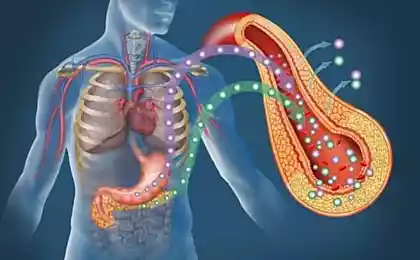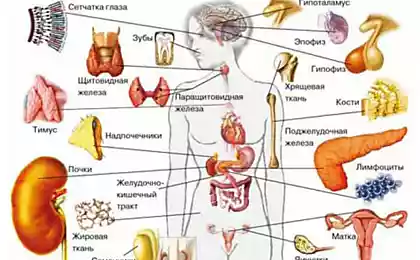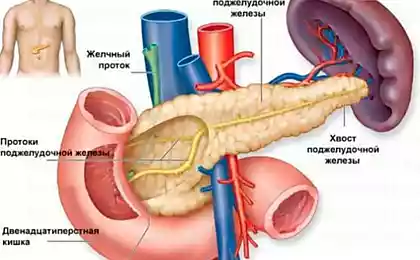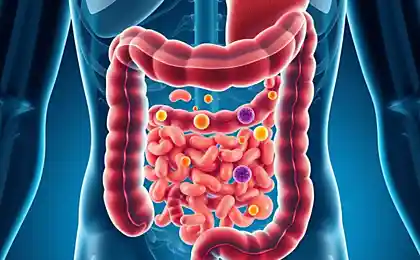432
Lack of sleep, nutrition and insulin sensitivity: a new study
With the expansion of our knowledge about the complexity of the mechanisms of appetite and energy balance, attention get important new indicators, such as adequacy of sleep and circadian rhythm.The results of a study conducted by Robert Eckel (Robert Eckel) and his colleagues, published in the British journal "Modern biology" ("Current Biology"), clearly show that lack of sleep and characteristics of the diet may affect insulin sensitivity.

The study was conducted observation of 16 young adults (8 of whom were women) with normal body mass index. In the first week study participants slept for 9 hours a night, then for 9 hours a night for 5 days and 5 hours a night for 5 days (5 days short five-hour sleep imitated five days a week). Sleep duration was restricted by a later bedtime (2 hours later), and earlier Wake-up (2 hours earlier).
At the initial stage of the observed received an energy-balanced diet, then during periods of scheduled wakefulness phase alternating weeks of five - and nine-hour sleep, participants consumed an arbitrary amount of food at their discretion.
In General, during periods of simulated five-day working week, with five hours of sleep per night and meals at the discretion of the observable oral and intravenous tests showed a decrease in insulin sensitivity by 20%, which was offset by increased production of insulin.
These changes persisted for up to five days in the coming weeks with a normal nine-hour sleep.
The study authors also found that constant changes in the circadian rhythm lead to morning insomnia and nutrition in biological clock of the night, which over time can contribute to weight gain.
These discoveries are of great importance not only for those working in shifts, but for all who, probably, not receiving enough sleep necessary for recovery.
Perhaps, in clinical practice it is necessary to pay more attention to the amount of sleep and its effect on appetite and metabolism. published
P. S. And remember, only by changing their consumption — together we change the world! ©
Join us in Facebook , Vkontakte, Odnoklassniki
Source: intueat.ru/journal/nedosy-p-osobennosti-pitaniya-i-chuvstvitel-nost-k-insulinu-novoe-issledovanie/

The study was conducted observation of 16 young adults (8 of whom were women) with normal body mass index. In the first week study participants slept for 9 hours a night, then for 9 hours a night for 5 days and 5 hours a night for 5 days (5 days short five-hour sleep imitated five days a week). Sleep duration was restricted by a later bedtime (2 hours later), and earlier Wake-up (2 hours earlier).
At the initial stage of the observed received an energy-balanced diet, then during periods of scheduled wakefulness phase alternating weeks of five - and nine-hour sleep, participants consumed an arbitrary amount of food at their discretion.
In General, during periods of simulated five-day working week, with five hours of sleep per night and meals at the discretion of the observable oral and intravenous tests showed a decrease in insulin sensitivity by 20%, which was offset by increased production of insulin.
These changes persisted for up to five days in the coming weeks with a normal nine-hour sleep.
The study authors also found that constant changes in the circadian rhythm lead to morning insomnia and nutrition in biological clock of the night, which over time can contribute to weight gain.
These discoveries are of great importance not only for those working in shifts, but for all who, probably, not receiving enough sleep necessary for recovery.
Perhaps, in clinical practice it is necessary to pay more attention to the amount of sleep and its effect on appetite and metabolism. published
P. S. And remember, only by changing their consumption — together we change the world! ©
Join us in Facebook , Vkontakte, Odnoklassniki
Source: intueat.ru/journal/nedosy-p-osobennosti-pitaniya-i-chuvstvitel-nost-k-insulinu-novoe-issledovanie/
Heart surgeon Leo Bokeria: Our heart - reliable Swiss watches. But it is necessary to "wound"
The limit of patience
























